Imagine finding yourself in East Africa, where thousands of children are being abducted and transformed into child soldiers. Families are separated, some killed horrifically.
The government forces you to relocate to an area of safety, and here you’re invited to pray with a small gathering of believers.
After a few weeks, more than 50 believers are gathering for prayer and worship.
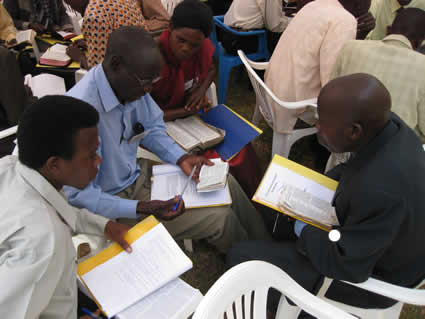
Someone suggests the group should form a church and asks for a volunteer to pastor the group, and another volunteer to assist.
After six months, the fellowship has grown to 500 members. Land has been given, a church building is being erected, and it’s all being led by a willing, volunteer pastor — with no theological training.
But the picture is not yet complete. And it’s not uncommon.
This pastor knows that people in his congregation are facing many challenges, including the reality of HIV and its progression into AIDS, and potentially death.
He tells them “God can heal you,” so many church members stop taking their medications. Possibly a widower marries again, but doesn’t tell his new wife that he has AIDS because he thinks he is healed.
Still other families are desperate for food … work … training for jobs … money to start a small business, so they come to their volunteer pastor for relief.
If your family is in desperate need of money, whom do you go to? Do you go to your pastor?
In Africa, the answer is overwhelmingly “of course.” And this question leads one to discover some significant differences in how pastors are viewed in Uganda and here in the United States.
In all fairness, in the U.S. one might approach his or her pastor or at least the church’s benevolence committee about financial difficulties. But what about questions about hygiene? Problems selling a home? Learning how to budget?
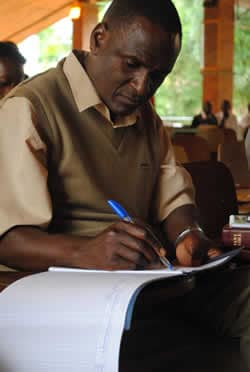
The African pastor faces very real expectations, not only to provide resource and counsel in the spiritual realm, but also in the physical, social, economic and educational realms as well.
Another challenge faced by African pastors is that the majority must find work outside the church to support themselves and their families, which leads to a great personal need for the very training/equipping a pastor needs to present his congregation.
To say that the role of the African pastor is complex is an understatement.
Jackson Rujoga, a church partnership facilitator with Compassion Uganda says,
“The Bible says that David led God’s people with a heart of integrity and hands of skill; our pastors have the heart, but often lack the skill to deal with even simple issues that we might assume are common sense.”
When a pastor begins serving a church, he is open-hearted and willing to serve. Then a realization occurs; ministry requires much more than willingness and open-heartedness.
Soon, the pastor discovers that while money is coming in, more is going out, families are demanding, and he feels overwhelmed.
Not knowing the biblical foundation of how to handle the situations he faces, he makes decisions that compromise the very integrity that led him to be chosen as pastor.
Pastors Discipleship Network, founded by Richmond Wandera, a Compassion alumnus and Leadership Development Program graduate, is reaching out and empowering pastors to face this challenge.
If pastors are trained, empowered and equipped in biblical principles, then they can be further trained on how to identify and resolve challenges in these other areas, and how to nurture a mature church.
Then the entire community gets transformed.
Later this week, Pastors Discipleship Network is hosting approximately 500 pastors from the Congo, Kenya, Tanzania and Uganda at its third annual pastors’ conference, organized to train pastors in the concept of “mastering the land” from a biblical perspective —“Rooted in the Word.”
“Think about it this way. Your view of God shapes your view of the world, of yourself — and of your neighbor. It shapes how you approach the “land” or, in other words, your decisions on relationships, finances, employment, politics etc. So the mindset and one’s heart are critical.
“Once someone is rooted in the Word, they’re able to face the different stones or challenges that come seasonally in the land.
“For example, in Uganda we have seasons of peace, but also seasons of war and civil unrest. Very practically speaking, people need to know how to deal with anger, or how to respond when political leaders are being ill-treated. Do they join the demonstrations? How should they respond?
“The church is a place where people come in good times and in desperation, and the church is ready to listen.
“The people can be stripped of everything else, but they will still come to church — when they are in need, they need a pastor who is knowledgeable about many areas of life and who is living a Christ-like example to those who follow him.
“Even [the Ugandan] president — Museveni — goes to church. There is a pastor today who is speaking into his life … into the areas of family, politics, business, and relationships.”

Being “rooted in the Word” makes mature disciples who are able to go out and “master the land” — wherever God places them… in a hospital, a church or a business — or in a justice house.
“I believe every decision in life is seasoned by our view of God, found in the Bible. And as one of my professors at Moody used to say — ‘every view of fallen man is — crooked or skewed, but the Word of God can create change in one’s heart.’ That’s what Pastor’s Discipleship Network is trying to help pastors do — for their congregations and the greater community of East Africa — by God’s grace.”
ABOUT THE AUTHOR: Melissa Riehl joined Compassion in 2004 and is the Director of Donor Development. Originally from Houston, TX Melissa is Ugandan at heart and is a volunteer member of the Pastors Development Network’s leadership team.


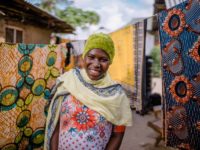
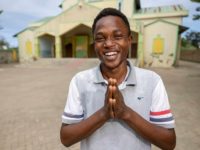
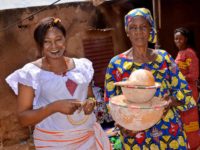


4 Comments |Add a comment
I had no idea about this. Hopefully they will get the training they require.
Thank you for blogging about PDN. This ministry has become dear to my heart, and, as it dovetails so well with what Compassion does – indeed the pastors leading these churches ministering to the children -seems the perfect sister ministry to support and encourage. I hope that folks reading this will visit the PDN site at pdnafrica.org and check out ways they can engage with this work by supporting pastors and their training, and supplying the vital resources so needed in East Africa at this time. Thanks.
Richmond and the Pastors Discipleship Network team have an amazing vision to see these pastors equipped and I’m amazed when I think of the ripple effect this will have across East Africa! I hope many Compassion sponsors will pray for this conference or perhaps even contribute to PDN to help meet all the needs they face in empowering these pastors and their churches. Thanks for sharing this with us to help us all better understand the need!!
Great post. Thank you for sharing. Through my own contact with pastors in Africa I’ve discovered that many of them face enormous challenges. The need for training and development is critical. Thank you for building into these courageous leaders.